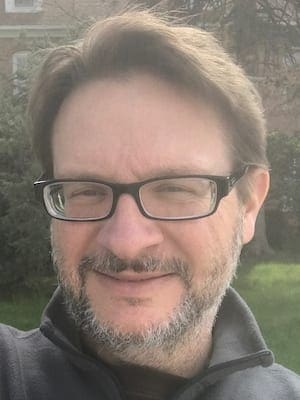Robert Parham of EthicsDaily.com has issued a clarion call for faith leaders in America to speak out on the economic crisis. I second his motion with a few reservations and stipulations.
First, I’m not sure if most American Christians know how to respond to the “total market” ethos holding America captive. Many of us are indeed captured by its vision and practices where greed is given the status of virtue. It’s the economic water we drink.
American Christians ”some of the best capitalists ”have enjoyed the fruits of an unregulated market. We could not have our SUVs, new development mansions, boats, cruises, block-sized sanctuaries, season-tickets, pastor severance packages, fine-dining culture, selective health care procedures, battery of daily medications and in-home cinemas if it weren’t for the financial strategies and economic philosophy we have come to trust so much.
That is why many of us are so angry ”not at the system, but at individuals and companies ”over the $700 billion bailout. We believe our trust has been betrayed by a few scurrilous speculators who have sacked the system.
But do we not blame them so that we don’t have to reconsider the occasions and actions that made possible our own lifestyles?
So many American Christians are morally formed by the easy-money ethos that we can neither comment on the crisis ”because it makes possible every aspect of our frenetic and materially ravenous lives ”nor the bailout ”because it’s bailing us out from the guilt we might have to face.
We don’t want to think about how our reliance on the financial gambling found in the market impacts a whole host of life’s necessities. We ignore how market speculation leverages risk either for enormously positive or negative outcomes, much less how it affects our neighbors near and far.
We don’t want to learn that our comfort has come at great costs for others, like the fact that the inexpensive energies we use to sustain our lifestyles ”energies still viable due to market forces as much as technological forces ”many times cause more injury to the poor than a lost retirement fund.
Many American Christians want the possibility of living without cares and problems, and we’ve come to learn that the necessary mechanism for that end, at least at this point in history, is the unregulated market.
This brings me to the second point: stipulations. For this I turn to Wendell Berry, one of the most important Southern writers, unofficial theologians, and agrarian-minded economists of this age, and to his idea of “total economy”.
Berry says in Citizenship Papers that a total economy is an “unrestrained taking of profits from the disintegration of nations, communities, households, landscapes and ecosystems. It licenses symbolic or artificial wealth to ‘grow’ by means of the destruction of the real wealth of all the world.”
The deep truth of this definition can be found when we look over our right shoulders, where only three years ago unregulated development cleared hundreds of thousands of forests and agricultural lands for suburban residential support. The Atlanta Regional Commission, for example, reported in 2005 that 55,000 acres of land was lost to development, with 240,000 acres ”an area the size of enormous Atlanta’s Cobb County ”lost in the previous six years.
How much have the aspirations of developers fueled the mortgage crisis? Perhaps the loss of meaningful land to development is one indication of our greed for bigger homes beyond our means, the availability of those homes, the willingness of creditors to fund our greed and a tell-tale sign and pension for cheap commodities.
If Christian leaders are going to speak out on the present crisis, we have to follow Berry’s advice and abide by a few stipulations and rid ourselves of a few assumptions, several being:
1) That there is no conflict between the free market and political freedom, and no connection between political democracy and economic democracy;
2) That there can be no conflict between economic advantage and economic justice;
3) That there is no conflict between greed and economic health;
4) That there is no conflict between self-interest and public service;
5) That it is all right for a nation’s or a region’s subsistence to be foreign-based, dependent on long-distant transport, and entirely controlled by corporations;
6) That, therefore, wars over commodities are legitimate and permanent economic functions;
7) That it is all right for poor people in poor communities and countries to work at poor wages to produce goods for export to affluent people in rich countries or communities;
8) That an economy is a machine, or which people are merely the interchangeable parts. Once has no choice but to do the work (if any) that the economy prescribes, and to accept the prescribed wage.
Once we have met these stipulations, I believe we can and should speak out, for the problem is not a “them,” but an “us.” God help us.
Andy Watts is assistant professor of Christian ethics at Belmont University.

